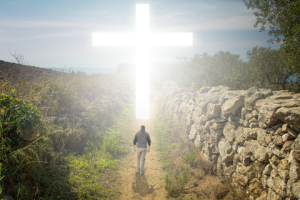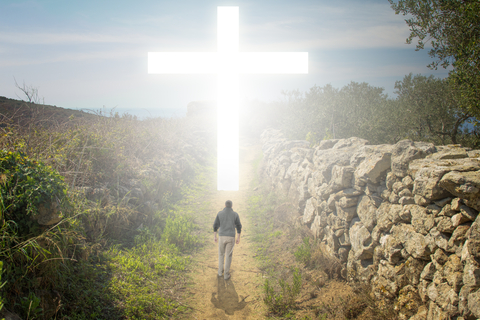
I remember hearing a sermon once on Romans 12:1, “I appeal to you therefore, brothers, by the mercies of God, to present your bodies as a living sacrifice, holy and acceptable to God, which is your spiritual worship.” The minister, George Stockhowe, said the problem with living sacrifices was that they are always trying to crawl off of the altar.
Several commentators have noted that the phrase, “the mercies of God,” in verse 12:1 is a succinct summary of what Paul has said up to this point in the epistle to the Romans. C. K. Barrett said that the proper response “is not to speculate upon the eternal decrees, or one’s own place in the scheme of salvation, but to be obedient.” And the sacrifice is to be a living one. F. F. Bruce commented that the sacrifices of the New Testament did not consist of taking the life of others, “but in giving one’s own.”
The phrase “spiritual worship” can get scholars going because the Greek word used here for spiritual, logikos, only appears one other time in the New Testament (1 Pet. 2:2). Sifting through the various perspectives, I’d suggest we see Paul as saying that our living sacrifice is “your [true] spiritual worship.” So while there can be a variety of things that we do as “spiritual worship,” being a living sacrifice is real, true spiritual worship.
Oswald Chambers regularly addressed the topic of surrender and being a living sacrifice in his devotional classic, My Utmost for His Highest. Here are a few selections:
“It is of no value to God to give Him your life for death. He wants you to be a ‘living sacrifice,’ to let Him have all your powers that have been saved and sanctified through Jesus. This is the thing that is acceptable to God. . . . In sanctification, the regenerated soul deliberately gives up his right to himself to Jesus Christ. . . . If we do not sacrifice the natural to the spiritual, the natural life will mock at the life of the Son of God in us and produce a continual swither. . . . The only way we can offer a spiritual sacrifice to God is by presenting our bodies a living sacrifice. . . . This is always the result of an undisciplined spiritual nature. We go wrong because we stubbornly refuse to discipline ourselves, physically, morally or mentally. . . . Surrender is not the surrender of the external life, but of the Will; when that is done, all is done. There are very few crises in life; the great crisis is the surrender of the will. God never crushes a man’s will into surrender, He never beseeches him, He waits until the man yields up his will to Him. That battle never needs to be re-fought. . . . After surrender—what? The whole of life after surrender is an aspiration for unbroken communion with God. ” (My Utmost for His Highest, January 8, January 10; December 10; September 13)
There is a clear parallel here to the surrender thinking in recovery, as in these slogans: “I can’t, God can, I think I’ll let Him;” or: “I can’t handle this one God; please take over.” It’s also present in the Third Step: “Made a decision to turn our will and our lives over to the care of God as we understood Him.”
Although you won’t see this mentioned in A.A. literature, early AAs and its founders read My Utmost for His Highest in the early pre-Big Book years. Dick B., an historian on A.A., reported that early Akron A.A. meetings opened with prayer and a reading from the Bible or a devotional such as My Utmost for His Highest. Dr. Bob, his wife Anne, Bill W. and his wife Lois used the devotional. Dr. Bob and Anne used it on a daily basis. Lois mentioned in a notebook she kept between December 1934 and August 1937 that she really saw herself in the reading for July 22nd.
In his July 22nd reflection on Sanctification, Oswald Chambers commented there was a battle royal before sanctification; there was always something that resented the demands of Jesus Christ. Quoting Luke 14:26 on the cost of discipleship, Chambers noted that the struggle began as soon as the Spirit of God began to show us what sanctification meant–to hand our “simple naked self over to God”:
Am I willing to reduce myself simply to ‘me,’ determinedly to strip myself of all my friends think of me, of all I think of myself, and to hand that simple naked self over to God? Immediately I am, He will sanctify me wholly, and my life will be free from earnestness in connection with everything but God. (My Utmost for His Highest, July 22nd)
Finally, in the closing exhortation of the chapter, “A Vision for You,” from the Big Book, Alcoholics Anonymous, Bill W. said: “Abandon yourself to God as You understand God. Admit your faults to Him and to your fellows. Clear away the wreckage of your past. Give freely of what you find and join us.” And remember: living sacrifices will try to crawl off of the altar.





